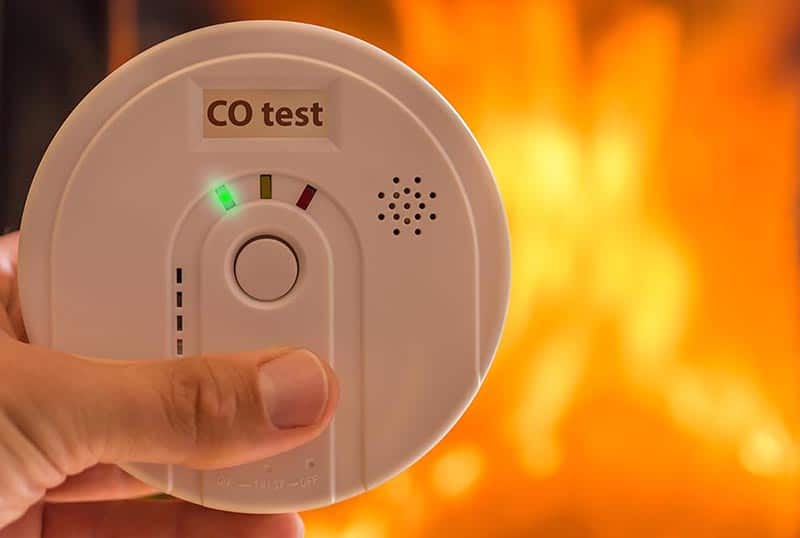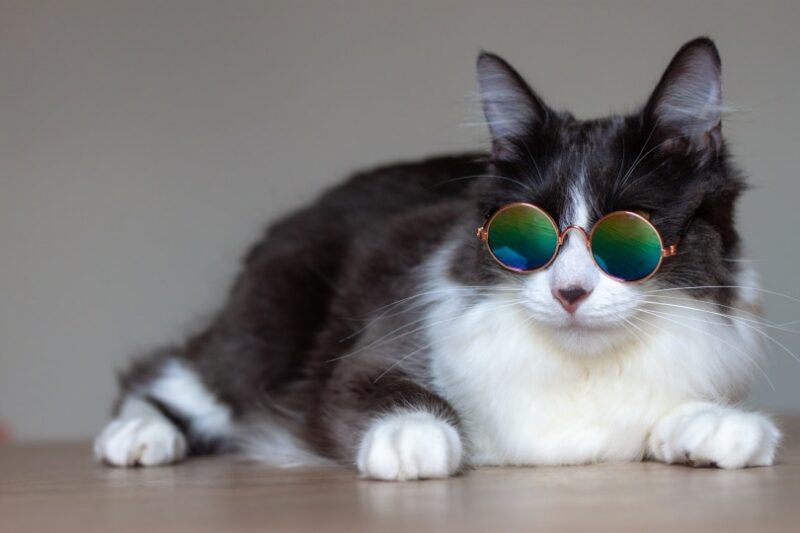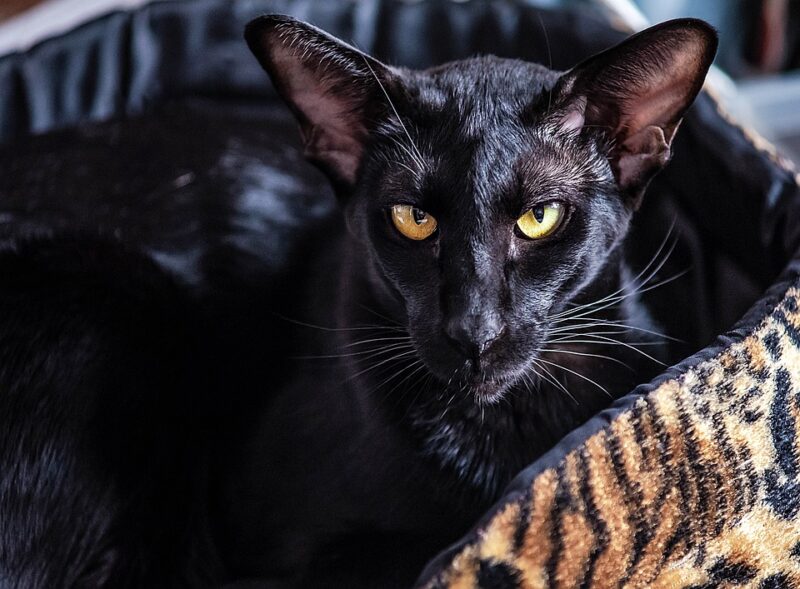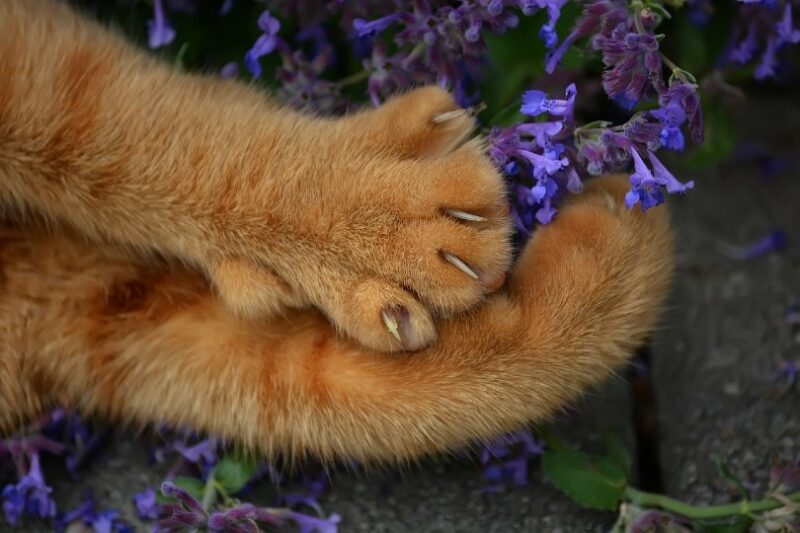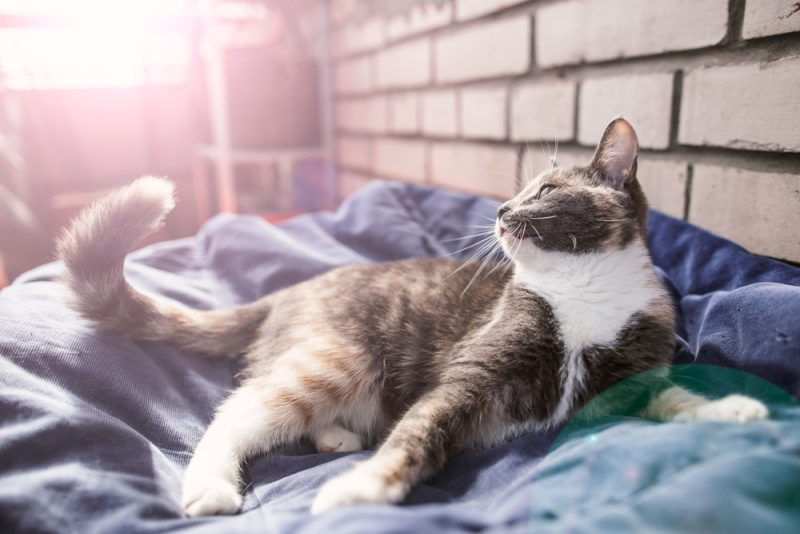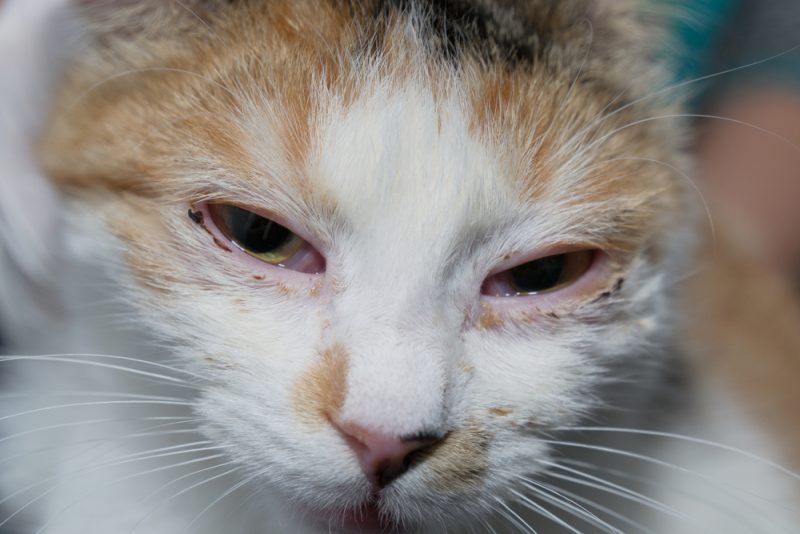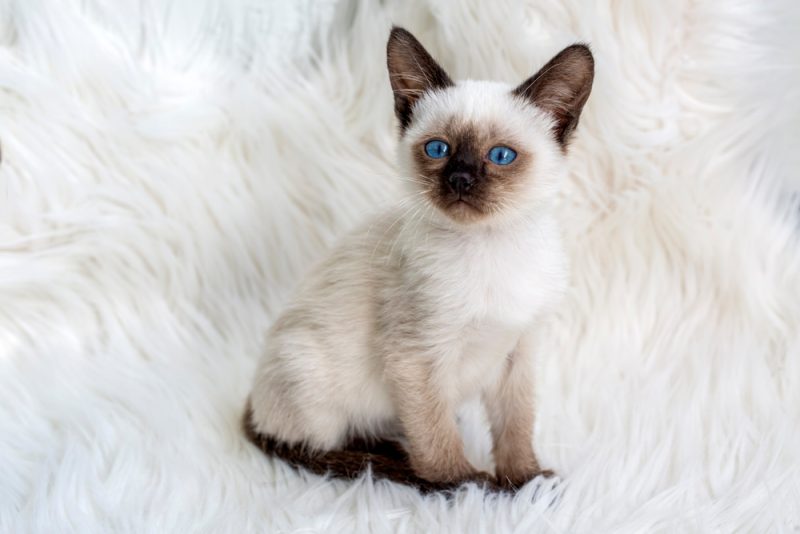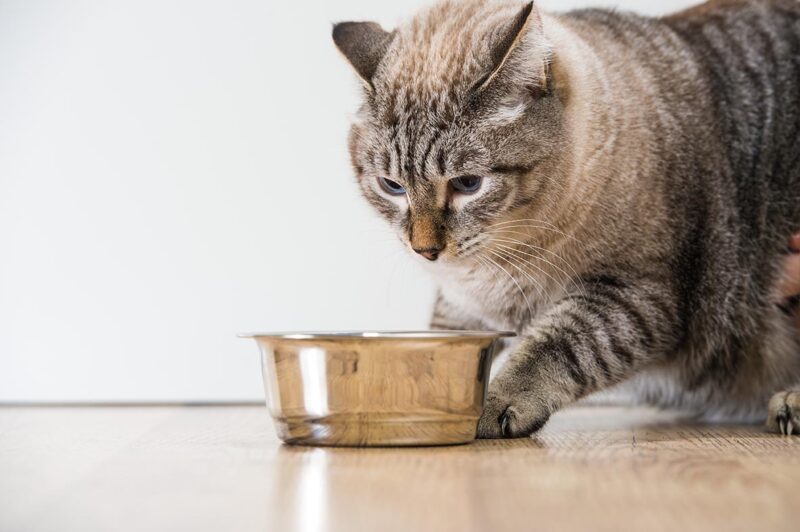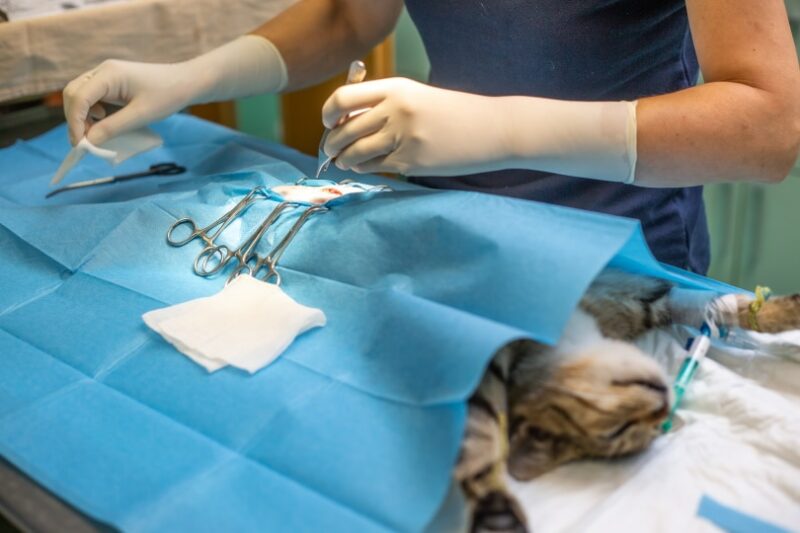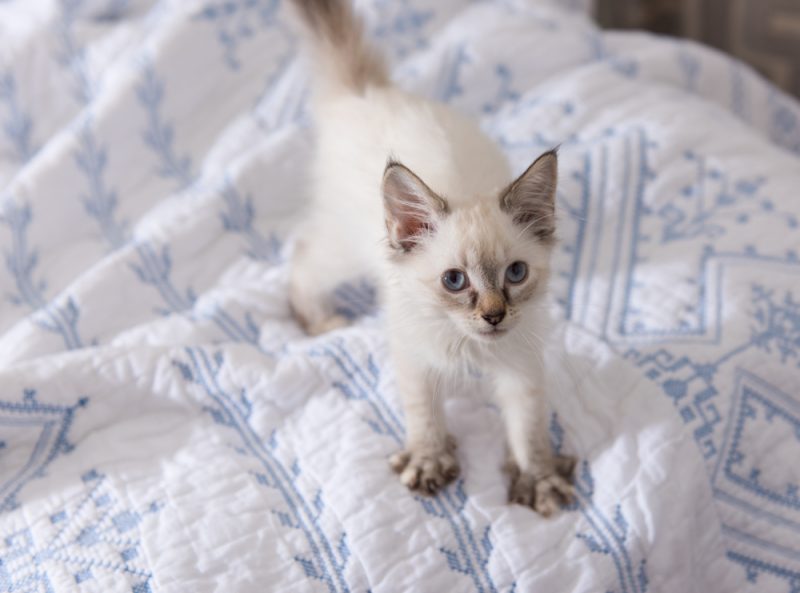Cats cannot smell or otherwise detect carbon monoxide. This gas is completely odorless. Therefore, there is no way for your feline to detect it—despite their stronger noses.
However, cats have a higher metabolic rate than humans, as well as a higher respiratory rate. This means that the odds of a cat showing signs of carbon monoxide poisoning before a human does are very high. In fact, this concept of using animals to sense carbon monoxide leaks has been used by miners in the past.
Because the gas is highly toxic to both humans and cats, having a carbon monoxide detector is always a good idea.

Do Cats React to Carbon Monoxide?
Cats do not voluntarily react to carbon monoxide because they cannot detect it. However, a cat can definitely display signs of carbon monoxide poisoning if they inhale the gas. Carbon monoxide affects cats the same way it affects humans.
Hemoglobin is the single most important component of red blood cells. Oxygen binds to it as it is carried around the body by the red blood cells. Carbon monoxide’s affinity for hemoglobin is over 200 times greater than that of oxygen. As a result, it binds to hemoglobin more readily and prevents the transport and use of oxygen around the body. This causes the major organs to fail, which eventually leads to death. Consciousness is lost once the brain is robbed of oxygen.
There is no established lethal dose for carbon monoxide in cats1. The lethal dose for humans is around 100 ppm (parts per million)2. It is thought that a cat would react more rapidly to carbon monoxide than a human would because of their higher respiratory rate and their faster metabolism.
Conceptually, a cat showing signs of poisoning rapidly is similar to how canaries were once famously used in mines to detect carbon dioxide. Their faster metabolism and higher respiratory rate meant that they showed the signs of toxicity much more rapidly than humans would.
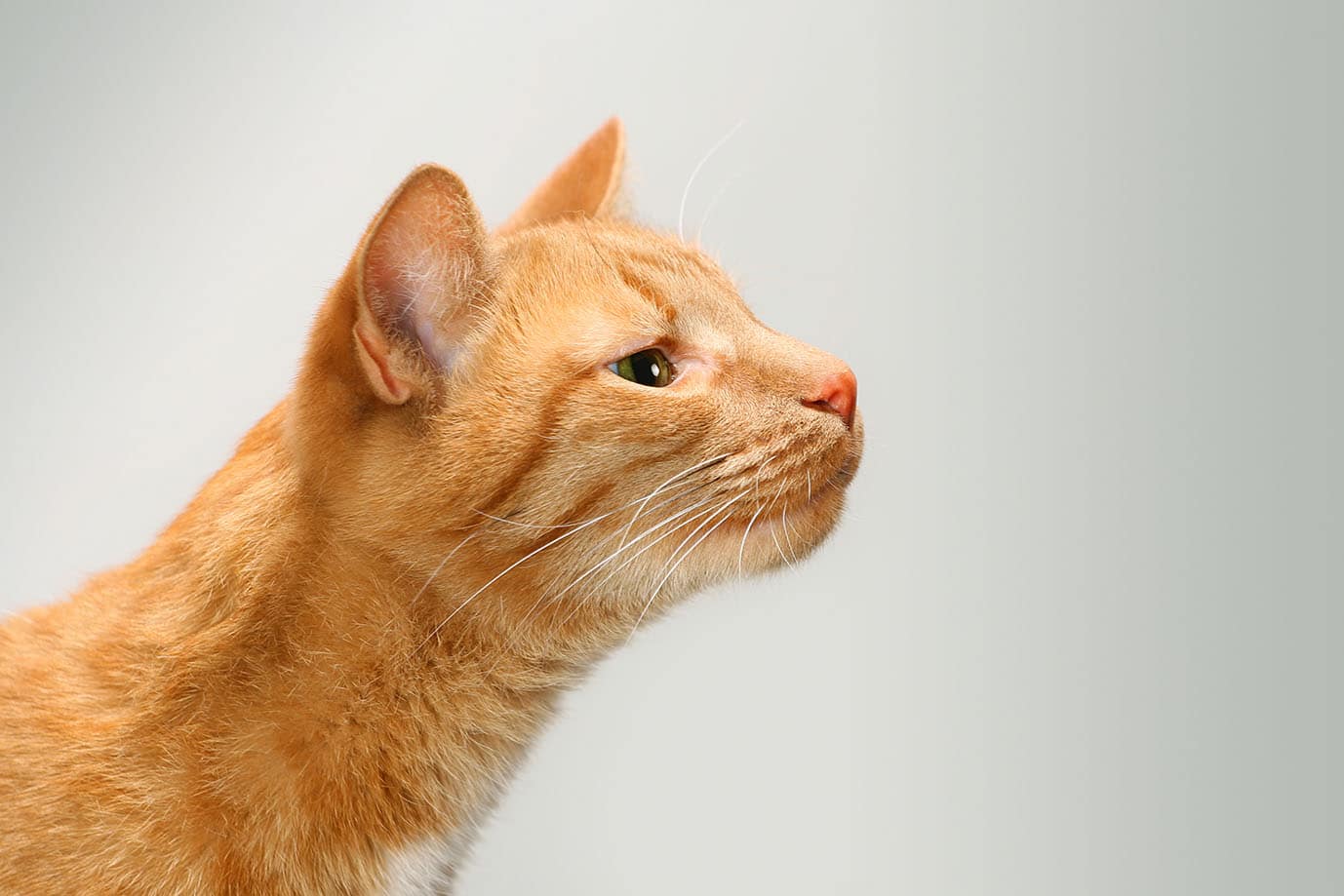
Carbon monoxide poisoning is the most common form of gas poisoning in many countries. In the US, approximately 40,000 emergency room visits per year are due to carbon monoxide poisoning 3.
Can Cats Smell Gas Leaks?
Cats can smell a gas leak. The smell we associate with a gas leak is added to the gas source (be it a pipe or cylinder) so that we can detect the presence of the gas. In essence, the smell is purposely added as a safety precaution. A cat’s sense of smell is more acute than a humans, and as such, it’s safe to assume that they can smell a gas leak.
Nonetheless, a cat doesn’t know what a gas leak actually is and might inadvertently venture close enough to smell it even more, exposing themselves to even more risk.
How Long Does It Take for a Cat to Get Carbon Monoxide Poisoning?
There’s no fixed answer to this, as it would depend on the volume of the room the cat is in, the concentration of the gas, and how fast the gas is entering the space the cat is in. However, it is worth noting that even small exposure to the gas can have long-lasting effects, especially if it compromises the cardiovascular system.
Cats are often exposed to carbon monoxide due to human error. Usually, it’s because certain machines that run on gas aren’t installed correctly. In these cases, the amount released may be much smaller. Therefore, the cat may not show signs quite as soon. However, most carbon monoxide poisonings happen relatively quickly.
Cats may also be exposed to high levels of carbon monoxide during house fires. In this case, the amount of carbon monoxide released depends on what is burning. The lack of oxygen can suffocate many cats during house fires as well.
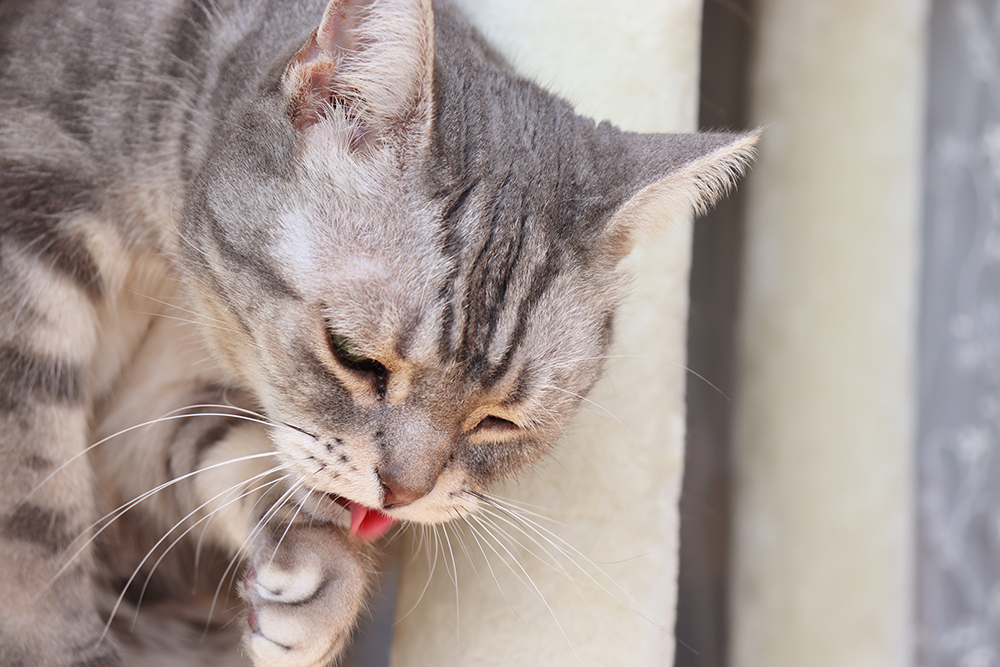
What Causes Carbon Monoxide Poisoning in Cats?
There are many sources of carbon monoxide in our modern world. Here are some of the most common causes of carbon monoxide poisoning in cats:
- Poorly ventilated areas
- Gas or kerosene heaters
- House fires
- Unventilated furnaces
- Vehicles in closed areas
- Carbon fuels

Conclusion
Cats cannot smell carbon monoxide, as it does not have any smell. Despite cats having stronger noses, cats will not consciously notice this gas. However, due to their higher metabolic rate and higher respiration rate, they typically show signs before their humans do.
Still, this doesn’t mean that their owners always notice the signs. When the cat is in serious trouble, the owner may also be sleepy, drowsy, and have other signs. Therefore, they may not be in the state of mind necessary to notice their cat is in danger. The best precaution against carbon monoxide is to install appliances properly and invest in carbon monoxide detectors.
Featured Image Credit: Ralf Geithe, Shutterstock
